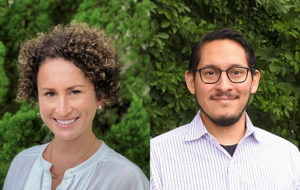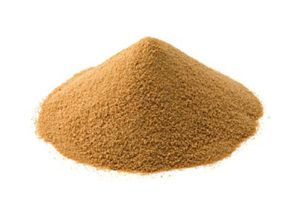Company seeks to commercialize wood-to-food technology within three years

Ricardo Ekmay wants to make it clear that alternative aquaculture feed ingredients, like the one his company Arbiom is developing, are not seeking to outright replace fishmeal or fish oil.
“The [aquaculture] industry has tended to focus on the word replacement. It’s led the conversation in a particular direction. We need to make the protein supply bigger, not just divert from one form to another. That’s what alternatives do,” said Ekmay, VP-animal nutrition at Arbiom, one of this year’s finalists for the Global Aquaculture Alliance’s annual Global Aquaculture Innovation Award. “We tend to approach [the problem] as a fishmeal replacement. But we need flexibility.”
Arbiom’s “platform technology,” as Ekmay calls it, mimics the natural process of decomposition of wood. Microorganisms – yeast, bacteria or even fungus – feed off the nutrients in the wood before being processed into a powder-form single-cell protein (SCP) source for animals. Launched in 2011 as a research institute, Arbiom is in the midst of a demonstration program for its product and is aligning investors and strategic partners with the goal of establishing a commercial-scale plant in 2022, potentially in Northern Europe or Scandinavia.
“If we can make the supply bigger and more sustainable, we give the industry ability to adjust to industry and consumer needs. This will be a concerted effort to push agriculture and aquaculture into a direction that is sustainable and ensures the long-term success as a whole,” he said.
https://www.aquaculturealliance.org/advocate/wood-you-believe-it-a-fish-feed-ingredient-from-the-forest/
Development of the yeast-based SCP product, which the company calls SylPro, has been gathering momentum in recent months as studies have demonstrated its handling and nutritional performance. A recent set of trials conducted at Texas A&M University, a leading U.S. aquaculture program, compared the product to conventional plant and animal protein sources and suggested that they perform well in the manufacturing process and showed positive nutritional benefits for hybrid striped bass (HSB).
The feeds were evaluated for growth rates, body composition, nutrient digestibility and general gastrointestinal health over a 60-day period. Results showed no differences in mortality or feed intake, and no statistical differences in body weight gain or feed intake, up to a 20 percent inclusion level. Ekmay called the HSB trials the “tip of the spear” that set off a wave of interest in the aquaculture community.

“The main objective is to provide a high-quality protein for carnivorous fish species, like Atlantic salmon and rainbow trout. The [hybrid striped bass trial] was the first to wrap up,” said Ekmay. “It was our intent, for all species, to provide a high-quality protein, robust enough to easily integrate into any [feed] formulation.”
The process starts with breaking down wood – from a broad range of woody biomasses, such byproducts from paper and pulp mills that would otherwise be burned – into simpler components and fermenting them using a microorganism. Arbiom is currently using Torula yeast (Cyberlindnera jadinii), but Ekmay said a number of microorganisms would also work. The resulting biomass is processed into a suitable form for animal consumption. Emily Glenn, Arbiom’s business development director, said Arbiom’s “wood to food” process is similar to how mushrooms grow on wood in the forest, decomposing the wood. Arbiom is, in a sense, “replicating what nature does, only faster and on a commercial scale.”
Aquaculture has a much greater appetite for change.
The company’s production capacity has been proven at the 20 and 50 cubic meter scale, which she deemed a “significant achievement.”
“We are excited to see promising results from recent trials evaluating the nutritional performance of SylPro in hybrid striped bass and Atlantic salmon diets as a complement or replacement for conventional protein ingredients,” she said.
Backed by a private family office in France, the company is “always fundraising,” she said, adding that a 2017 grant from the EU has aided Arbiom’s upscaling efforts to date.

Ekmay sees greater industry – and ultimately consumer – acceptance as familiarity with alternative ingredients grows: “Folks tend to fear what they’re unfamiliar with. That’s true of technology; that’s true of almost anything. Consumer engagement into the food system has challenged the industry to adapt, but it’s opened new opportunities. That level of closeness will allow alternative ingredients to succeed,” he said.
While SylPro would be suitable for a range of agricultural livestock production, fish farming is the initial target, said Glenn: “We’re looking at early adopters across different applications in feed and food sectors. Aquaculture has a much greater appetite for change, and it seems as though salmon producers are really leading the charge in terms of incorporating new technology.”
Glenn and representatives from the other two Global Aquaculture Innovation Award finalists will pitch at GAA’s upcoming GOAL conference in Chennai, India, as the audience will vote for the winner.
Editor’s note: This is the first of three articles profiling this year’s finalists for the Global Aquaculture Innovation Award, sponsored by Preferred Freezer Services. The other two finalists will be announced in the next two issues of the Advocate.
Follow the Advocate on Twitter @GAA_Advocate
Now that you've finished reading the article ...
… we hope you’ll consider supporting our mission to document the evolution of the global aquaculture industry and share our vast network of contributors’ expansive knowledge every week.
By becoming a Global Seafood Alliance member, you’re ensuring that all of the pre-competitive work we do through member benefits, resources and events can continue. Individual membership costs just $50 a year. GSA individual and corporate members receive complimentary access to a series of GOAL virtual events beginning in April. Join now.
Not a GSA member? Join us.
Author
-

James Wright
Editorial Manager
Global Aquaculture Alliance
Portsmouth, NH, USA
Tagged With
Related Posts

Aquafeeds
Wood you believe it – a fish feed ingredient from the forest?
Arbiom hopes to ride the wave of interest in novel feed ingredients and expand production of a nutrient-rich protein meal made from wood residues.

Aquafeeds
A new nutrient for aquaculture, from microbes that consume carbon waste
Biotechnology firm NovoNutrients aims to produce a line of nutraceutical aquafeed additives as well as a bulk feed ingredient that can supplement fishmeal. Its process includes feeding carbon dioxide from industrial gas to a “microbial consortium” starring hydrogen-oxidizing bacteria.

Innovation & Investment
Aquafeed opportunity attracts pioneers from fields afar
As business leaders switch focus from biofuels and energy to food security, one convert dubs the aquafeed opportunity a needed “redeployment” of knowledge.

Aquafeeds
The pink powder that could revolutionize aquaculture
KnipBio, a Massachusetts-based biotechnology startup founded in 2013, is refining the manufacturing process for a promising aquaculture feed ingredient that may one day form the foundation of the food that farmed fish eat.

